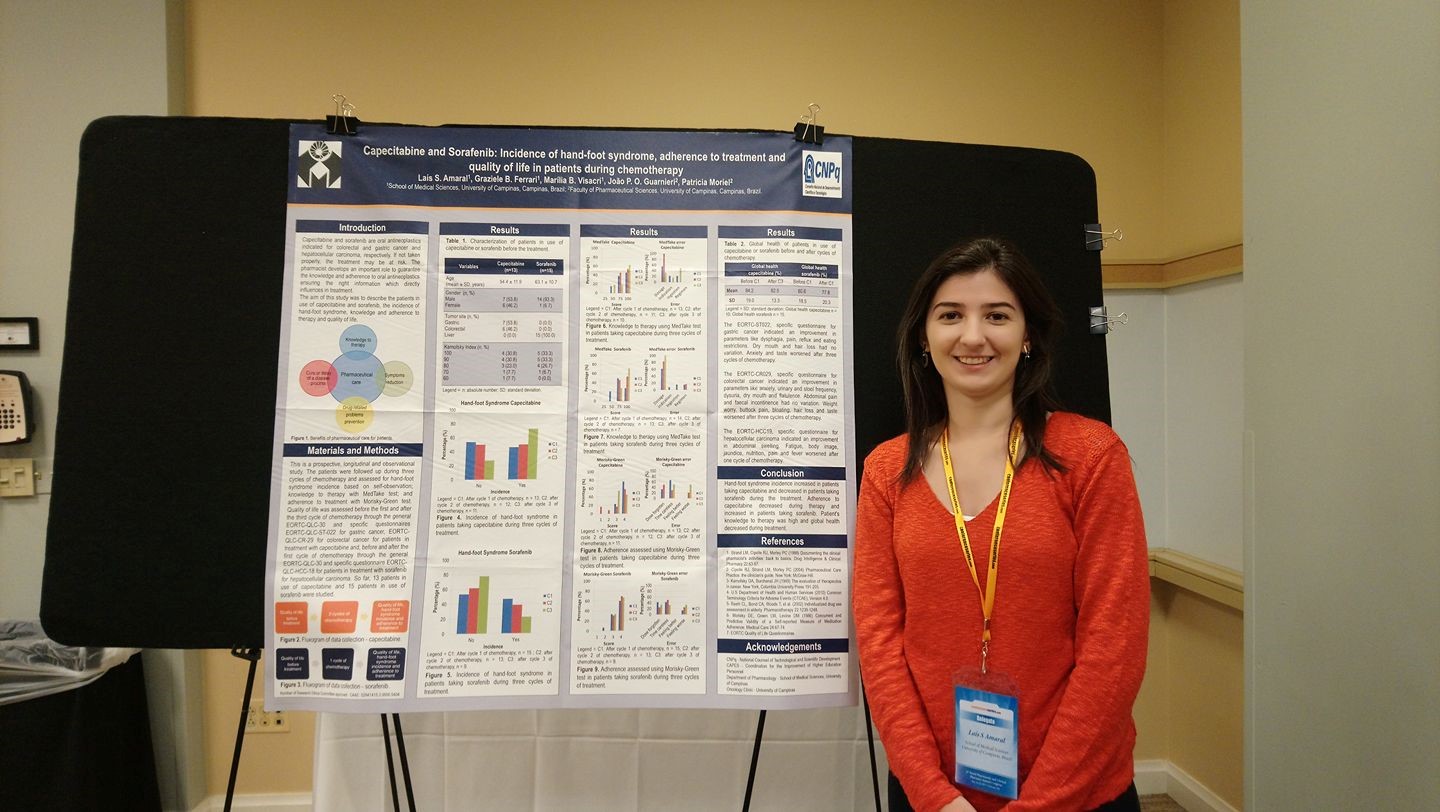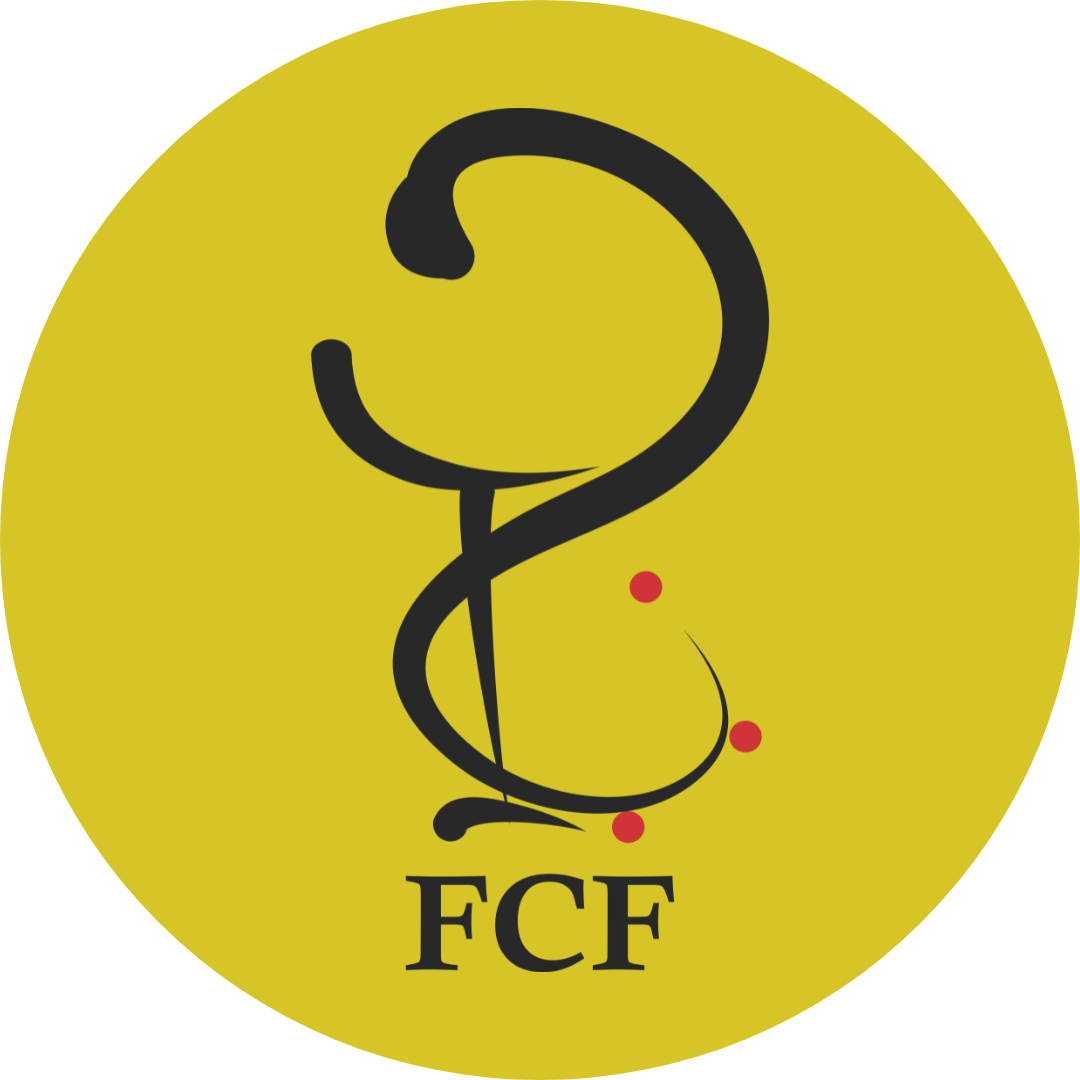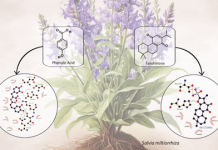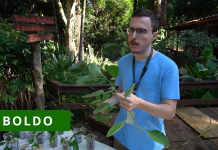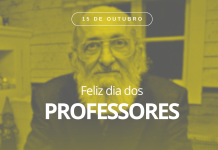Entre os dias 22 e 23 de maio ocorreu em Chicago, EUA o 6th World Pharmacists and Clinical Pharmacy Annual Congress. A aluna de mestrado do programa de Farmacologia – Lais Sampaio Amaral, ex-aluna de graduação do curso de Farmácia da Unicamp recebeu o prêmio de melhor trabalho apresentado no Congresso. O trabalho é da equipe da Profa. Dra. Patricia Moriel, desenvolvido no ambulatório de Oncologia do Hospital de Clínicas da UNICAMP. Segue abaixo resumo do Trabalho Premiado.
Capecitabine and Sorafenib: Incidence of hand-foot syndrome, adherence to treatment and quality of life in patients during chemotheraphy
Lais S. Amaral1, Graziele B. Ferrari1, Marília B. Visacri1, João P. Guarnieri1, Carmen S. P. Lima1, Patricia Moriel2
1 School of Medical Science; 2 Faculty of Pharmaceutical Science, UNICAMP, Brazil.
Statement of the Problem:Capecitabine (CAP) and sorafenib (SOR) are oral antineoplastics indicated for colorectal (CR) and gastric (ST) cancer and hepatocellular carcinoma (HCC), respectively. If not taken properly, the treatment may be at risk. The pharmacist develops an important role to guarantee the adherence to oral antineoplastics ensuring the right information which directly influences in treatment. The purpose of this study is to describe the patients in use of CAP and SOR, the incidence of hand-foot syndrome (HSF), adherence to therapy and quality of life (QoL). Methodology & Theoretical Orientation: This is a prospective, longitudinal and observational study. The patients were followed up during three cycles of chemotherapy and analyzed for HFS incidence based on self-observation; knowledge to therapy with MedTake test; adherence to treatment with Morisky-Green test. QoL was analyzed before the first and after the third cycle of chemotherapy through the general EORTC-QLC-30 and specific questionnaires EORTC-QLC-ST-022 for ST, EORTC-QLC-CR-29 for CR for patients in treatment with CAP and, before and after the first cycle of chemotherapy through the general EORTC-QLC-30 and specific questionnaire EORTC-QLC-HCC-18 for patients in treatment with SOR for HCC. Findings: The patients were male (CAP 53.85%; SOR 93.33%) caucasian (CAP 76.92%; SOR 86.67%) and tumors were in advanced stages (CAP 53.85% stage IV; SOR 60.00% BCLC C). MedTake indicated a high knowledge to therapy and, in both cases medicine dosage was the most common mistake. Morisky-Green also indicated a high adherence to both therapies but, patients frequently forgot to take their medicines and were careless about the timetable. The QoL decreased in both cases and the HFS was common in patients taking CAP at the second and third cycles of chemotherapy. Conclusion & Significance: QoL decreased despite the fact that the adherence to therapies was high.
